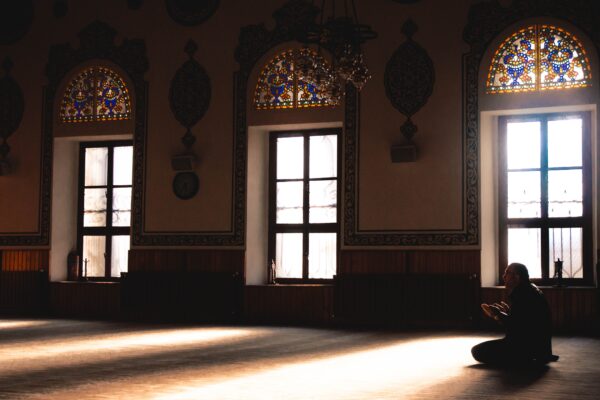What guidance does the Holy Quran provide when it comes to fulfilling the obligation of Zakat?
What guidance does the Holy Quran provide when it comes to fulfilling the obligation of Zakat?
As Muslims, we are well aware of our duty to give our zakat regularly to alleviate the burdens of anyone struggling around the world.
But where does the Quran convey zakat’s importance? And what advice does the Quran give us about how to best fulfill this duty?
Defining Zakat
Zakat, or zakat al-mal, is the obligatory alms upon wealth. It stands as the third of Islam’s five pillars.
Every Muslim is required to pay their zakat on a yearly basis given that they meet the designated minimal amount of wealth, or nisab (typically the current worth of 85 grams of pure gold or approximately 3 U.S. ounces).
Zakat is paid on five classes of wealth:
- Personal
- Business (trade goods and exploited assets)
- Agricultural produce (irrigated and non-irrigated crops)
- Livestock
- Discovered or prospected treasures (windfalls and natural resources)
Though the process of calculating what one owes for their “zakatable” assets can seem daunting, many Muslims nowadays choose to use an online zakat calculator for both ease and transparency.
Zakat in the Quran
The word zakat itself occurs 30 times in the Quran and is closely mentioned along with Islam’s second pillar, salah (prayer), in 27 of the 30 mentions.
Zakat is described not just as a transactional form of supporting the poor, but as a means of high spiritual purification that aids the development of one’s iman (faith):
So recite what is easy from it [the Quran] and establish prayer and give zakat and loan to Allah a goodly loan. And whatever good you put forward for yourselves, you will find it with Allah. It is better and greater in reward. And seek forgiveness of Allah. Indeed, Allah is Forgiving and Merciful.”
[73:20]
Indeed, traditional Quranic scholars Al-Wahidi (468H/1075CE) and Ibn Taymiyyah (661H/1263CE) noted that the choice of the word zakat to describe the obligatory alms carries the notion of the alms also protecting and increasing one’s wealth.
From this, we learn that the purification zakat has on an individual is comprehensive in both the spiritual and material senses. This is affirmed by the Quran itself in Surah Tawbah:
Take from their wealth a ‘charitable offering’ to cleanse them and purify them thereby.”
[9:60]
Additionally, the Quran describes the eight categories of people who are eligible to receive a Muslim’s zakat, emphasizing those most marginalized in society:
Indeed, ‘prescribed charitable offerings’ are only to be given to the poor and the indigent, and to those who work on administering it, and to those whose hearts are to be reconciled, and to free those in bondage, and to the debt-ridden, and for the cause of God, and to the wayfarer. This is an obligation from God. And God is all-knowing, all-wise.”
[9:60]
Sharing one’s wealth through zakat is so important that the Quran describes it as one of the main criteria for a true believer:
These are the ones who, when We set them in authority over the land, they duly establish the Prayer, and give the Zakat-Charity, and enjoin what is right and forbid what is wrong. Yet to God alone belongs the ultimate end of all affairs.”
[22:41]
From what the Quran has to say about zakat, we can conclude that its giving not only serves to engender social equality, but has a fully purifying effect on a Muslim’s spiritual and material life. For one to truly live life as a believing Muslim, zakat must be practiced regularly and generously in order to purify one’s self and society as a whole.
Our mission at the Zakat Foundation of America is to help Muslims carry out their zakat duties easily and correctly, in alignment with the standards set by the Quran and Sunnah.
Check out our Zakat Resource Center to discover a curated selection of materials covering the process of calculating and paying your zakat and to use our online Zakat Calculator.





